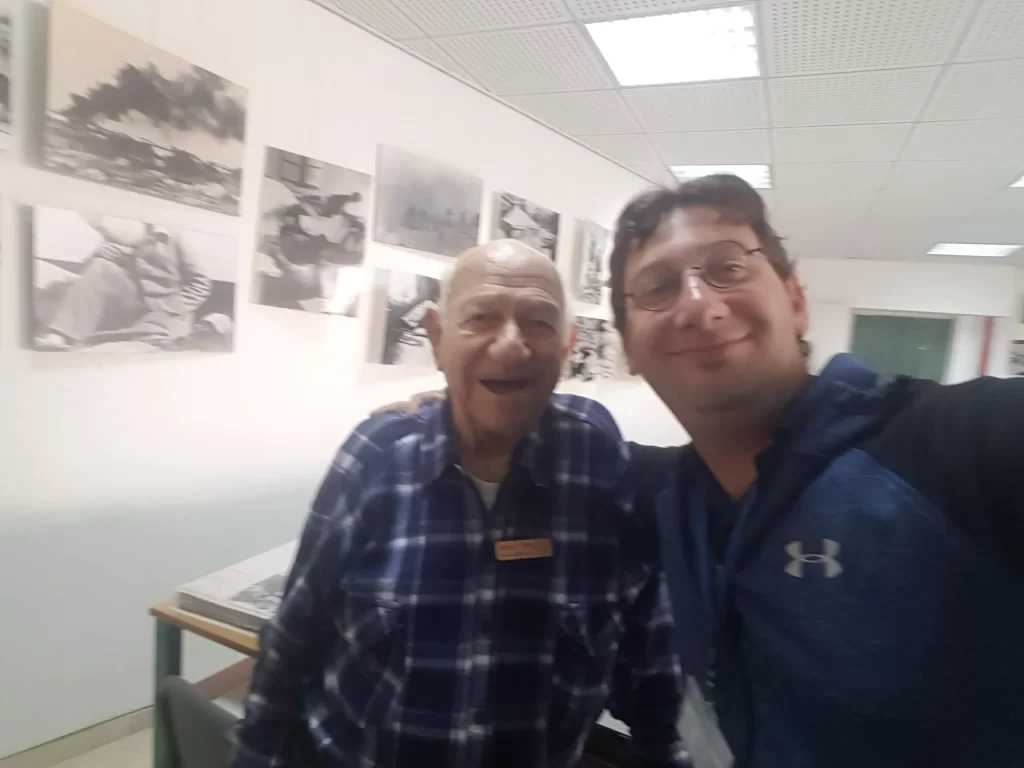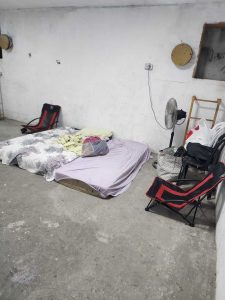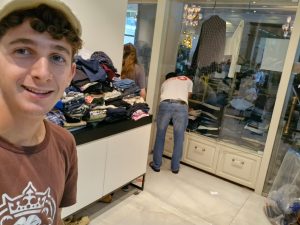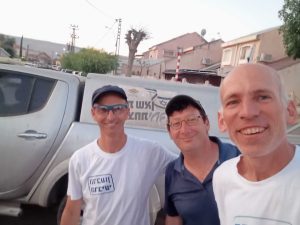I’m wondering: when we say “friend”, do we mean only a person you have an ongoing intensive relationship with, founded on shared history and experiences, mutual values, and views? Is it only the people you invite to share your celebrations, vacations, not to mention the bad and challenging moments of life? Is it the person you call from the car on the way home from work just to say hi, or to ask for help or to put in a good word for you? Is everyone else just “acquaintances” or people you just happen to know (may it be from work, from stores you shop in, or from the train you ride on every day together)?
Could such an “acquaintance” also be a “friend”, a true friend – one that leaves a mark on you? I think so.
Let me tell you about one such friend.
Every time I guide a group of tourists on a visit to The Palmach House in Tel Aviv, I do not miss the opportunity to call on one of my special friends. This meeting does not take place in the public multimedia exhibit which most people know as the Palmach Museum and is the reason for their visit to this building. It takes place in a back room in which long tables are stacked with extra-large photo albums – known as Otzar Ha’Tmunot (The Photo Gallery Room). These photo albums were put together by members of the Palmach (Strike Force), an elite fighting force that belonged to the Haganah, the underground army of the Jewish people (Yishuv) In British Palestine during the 1940’s and the War of Independence. The albums are organized according to topics and themes, such as recruitment, brigades and battalions, battles and more. The old photos of young men and women are a treasure gallery of the founders of our State. However, this room does not serve only as a storage and show case for the albums, it is also where the Palmachnicks, as the Palmach members are often referred to, gather to meet, socialize and reminisce. There is always someone there, and they are more than happy to talk to you or to a group of soldiers or tourists, show their pictures and share their story, our story, the story of the young men and women who fought for the founding of a Jewish state in the Land of Israel. I never miss this opportunity.
As I walk up the path between the buildings, I can already see into the room through the large glass windows and door that make up the room’s entrance wall, and I try to make out who is there. As a tour-guide, I have had many opportunities to visit and have gotten to know some of the regulars, one of whom is Shaul Sapir, who still at the age of 92, comes with a smile to talk to whoever walks in.
Now I know he is here, for the moment I open the door, he automatically calls out “Yedidi, Ma Shlomcha Yedidi?” (“My friend, how are you my friend?”) It is an exciting moment. Does Shaul know me by my name? I do not think so. Did I ever tell him my name? I must have, during one of our many meetings. Does it matter? Absolutely not. We are both overwhelmingly happy to meet each other again. After the regular inquiries of how are you, how is the family, the health, it is time for me to introduce my guests, or to quietly listen in as he tells his story to a group of soldiers standing around in the room.
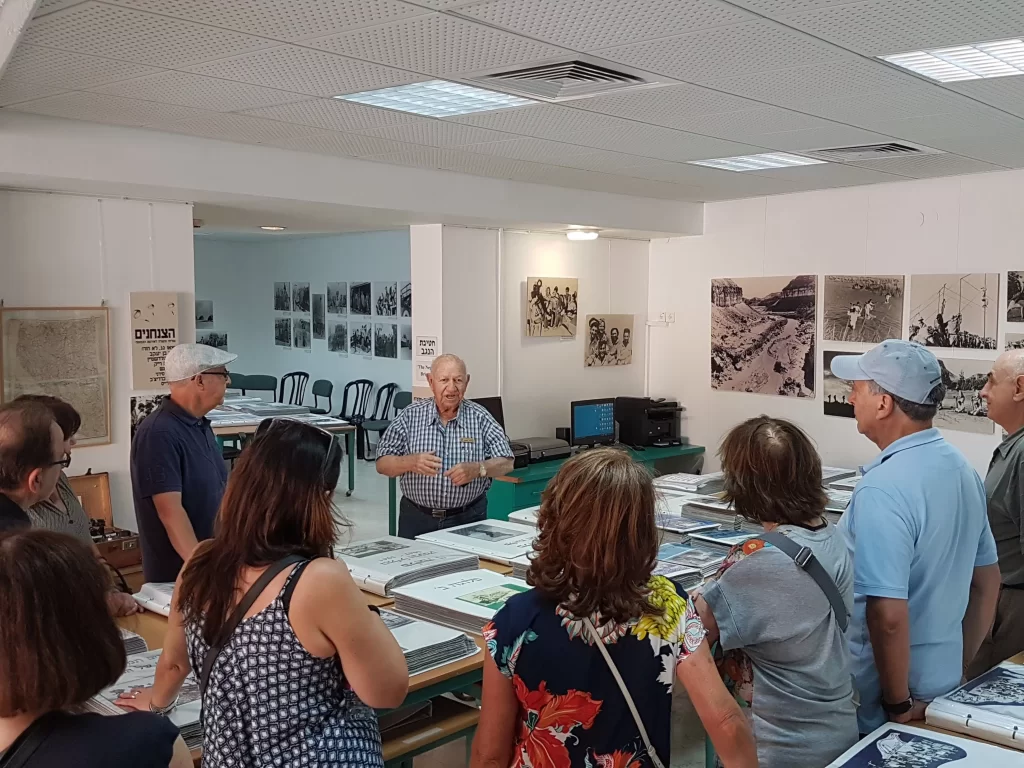
As he walks with us around the room, he pulls out albums and points to pictures, unfolding his personal story, which intertwines with the story of the State in the making and the War of Independence. Shaul joined the Palmach at the age of fourteen and a half. Born in Aleppo, Syria, his middle-eastern appearance and familiarity with the Arabic language, got him assigned, after training, to “The Black Unit” – the Mista’aravim, operating undercover in the guise of local Arabs among the Arab population both within the borders of Palestine and in neighboring countries. Following his Palmach stint, Shaul returned to his hometown of Haifa and was assigned to the reserves. In the wake of the dramatic UN partition vote on 29 November 1947, and the subsequent break out of war, Shaul was mobilized and assigned to the Negev Brigade in the south of Israel, becoming one of the founding fighters of the “Hayot Hanegev” unit (“Beasts if the Negev”), that operated throughout Israel’s southern desert area, securing the vital pipe line that supplied water to remote Jewish communities, opening roads and accompanying convoys, fighting the local Bedouin tribes and finally halting the advance of the invading Egyptian army heading for Tel Aviv. After participating in Operation Uvda, the concluding operation of the war, in which the Golani Brigade and Palmach Negev Brigade reached Umm-Rashrash, known today as Eilat, and hoisted the famous Ink-flag on the shores of the Red Sea, Shaul was released from the army together with the rest of “Hayot Hanegev”. He returned home, to Haifa, to a State that he himself delivered to the Jewish people “on a silver platter”.
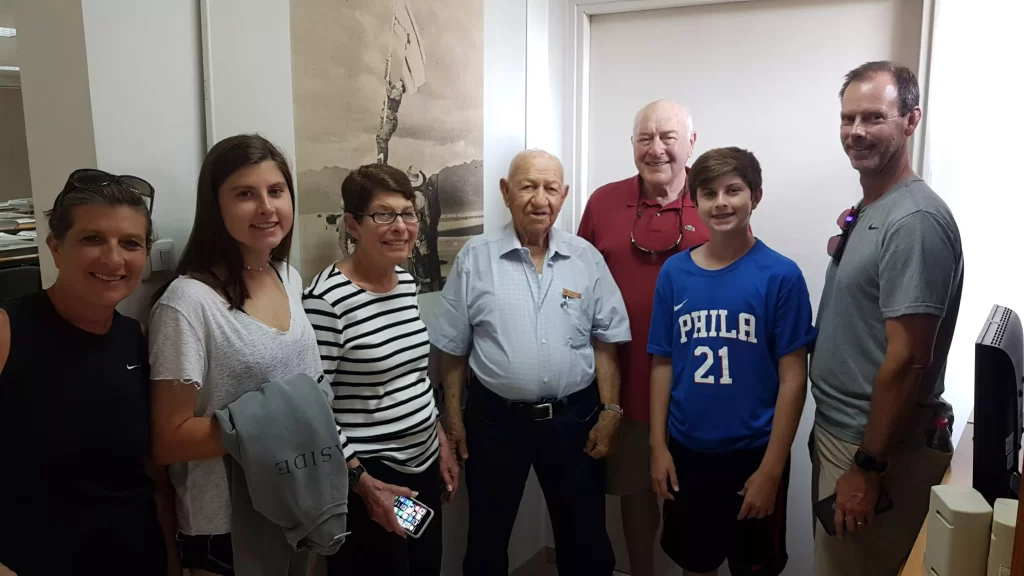
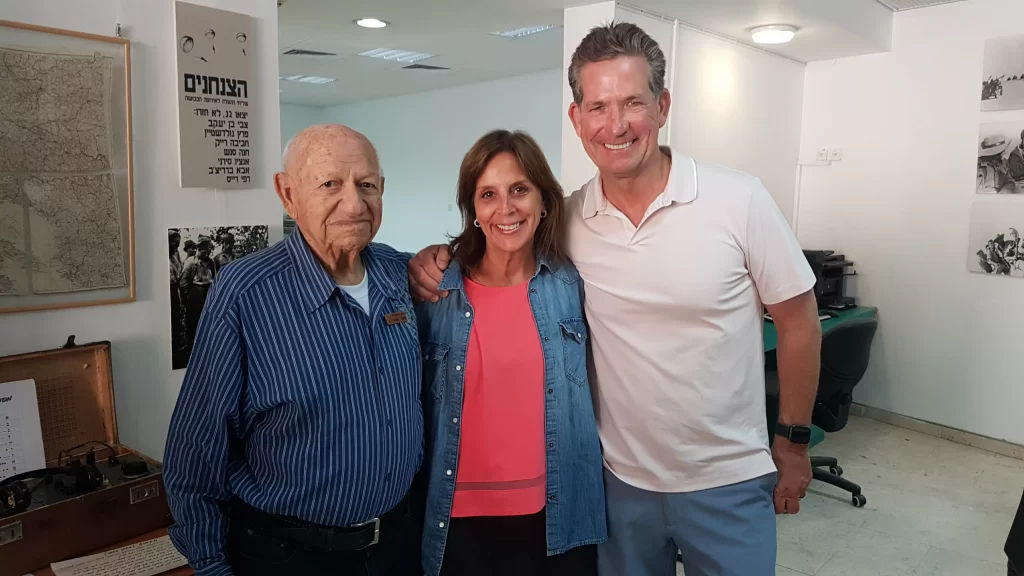
Not everyone returns from war, but their memories are not forgotten. Ha’Reut, the friendship and comradery, lives on forever, within the walls and albums of the Palmach House, and the hearts of the friends and fighters that meet here to tell their remarkable story.
It has been over 70 years since we declared our independence and established the Jewish State; over 70 years since the battles of the War of Independence. There is not a day that goes by without the nation’s remembering and recognizing the price and sacrifice for our State. We must not miss the opportunity to give gratitude to the young men and women who seized the moment and created our State. Shaul, my friend, gets up every day, stands tall and tells his story, their story, our story.
In addition to Shaul, it has been my privilege over the years to meet many Palmachniks in the Album Room and in my travels. Each one with his or her special story. Each one has inspired me and installed in me a strong sense of commitment to my land and state. It has deepened my understanding of our responsibility to ensure the continuing existence and prosperity of a Jewish and democratic state in the land of Israel, and our responsibility in ensuring the future of a prosperous Jewish people.
To Shaul, Yedidi– my friend, the Palmachnik, Yedidai- my friends, my deepest appreciation. May I have many friends like you.
